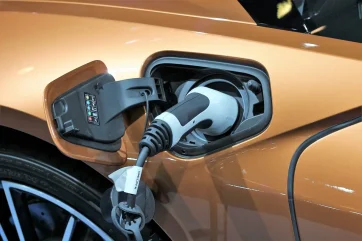
The cost of rapid public EV charging is almost unchanged since the start of the year, despite a fall in the wholesale cost of electricity, according to the RAC.
The motoring organisation said the average cost of a rapid pay-as-you-go charge, using chargers with power outputs between 50 and 149kW, currently stood at 79.19p per kWh, compared with 79.55p at the start of the year.
In contrast, it said a driver charging at home could pay 7p per kWh with an off-peak deal, or 25p at the energy price cap rate. It said this meant even drivers on a standard domestic electricity tariff would pay no more than £15.88 to fully charge an electric vehicle, down from a high of around £22 during late 2022 and 2023.
According to the RAC, continued high public charging costs could be attributed to increases in charges paid by charging providers, including towards future capacity, as well as the cost of installing new infrastructure, and there being no energy price cap for businesses, including charging providers.
It said these factors explained why falls in wholesale electricity prices, from 51p per kWh in August 2022 to 9p per kWh in August 2024, had not been passed on to public charging customers.
RAC spokesperson Rod Dennis said: “Our figures highlight the huge gulf in prices between those paid by EV drivers to use public chargers, and those that homeowners with EVs pay at home.
“Anyone who has an off-street parking space and a home charger installed can charge up for just a seventh of the price of using a lamppost or bollard charger off peak where these exist, and less than a tenth of the price of using a high-powered public charger.
“For these reasons, it’s vital that public charging costs for drivers come down. Reducing the rate of VAT charged on electricity sold at EV chargers from the present 20% to match the 5% charged to domestic customers would be a huge help, but this wasn’t included in last month’s Budget.
“The best prospect of lower prices may come from Ofgem reviewing and, in turn, reducing the additional charges the charging networks have to pay. If these costs come down, drivers could at last expect cheaper public charging costs in the future.”
Vicky Read, CEO of charging industry body ChargeUK, said: “We believe reforms are needed to help charge point operators offer public charging that is as affordable as possible.
“The sector has committed to spend £6 billion ahead of demand and profitability to deliver the charging infrastructure that the UK needs. With a public charger being installed every 25 minutes and the network expanding by 42% a year, we are on track to do this. Our members are also committed to making charging affordable as possible, because we know this is a key consideration in the decision to switch to EVs.
“But operators are faced with significant costs outside their control. VAT charged at 20% for public charging (versus just 5% at home), standing charges for rapid charging that have risen more than 10-fold in the past 18 months, wholesale electricity prices that remain among the highest in the EU28, and the fact that operators in the UK do not benefit from carbon credit schemes, unlike many of our European counterparts.
“We call on the government and Ofgem to act now to ensure that affordability is not a hurdle in the transition to EVs.”





